Although right-wing conservative gains were made, the European Parliament elections over the weekend did not result in a breakthrough. However, the informal grand coalition, a People’s Party-Socialist-Liberal alliance, may not be able to form a majority. Still, it appears that they will need more allies to elect the next president of the European Commission. Let’s look at the political landscape of Europe. What could happen over the next month? Will Macron be strong enough as he again influences the (re-)election of Ursula Von der Leyen, as he nullified Weber’s Spitzenkandidat victory with UVL five years ago.
Mainstream parties: who won, who failed?
Although it is unclear which new political players will join which party families or factions, there is already evidence of a shift from left to right. The European People’s Party (EPP) has gained seven new seats, bringing its total to 186 in the 720-member body. The EPP’s group had steadily shrunk in previous elections, but this trend has now reversed, the EPP emerged victorious by raising the profile of campaign communication on issues of direct concern to voters (e.g., migration, war).
The shift within the political centre is that the EPP’s strength mitigates the losses of the Socialists and Democrats Progressive Alliance (S&D) and the centrist-liberal Renew Europe groups. According to projections, the S&D group, barring the formation of the Meloni-Le Pen right-wing bloc, will retain its second seat in the European Parliament with 137 MEPs. The Renew group will now have only 80 seats instead of 102, mainly due to the declining support for the French governing party Renaissance. Macron was probably prepared for his disastrous result because he announced with great confidence the dissolution of the National Assembly and the calling of early elections on the night of defeat. From Macron’s perspective, it’s a Russian roulette decision at its best.
The German socialist SPD, which won just 13.9% of the vote, its worst result in a nationwide democratic election in more than 130 years, could be the start of a long struggle of the demise of the party. As Politico described, Chancellor and Socialist party leader Olaf Scholz was the “biggest loser” of the election night.
Others might say the Greens are the clear losers in this weekend’s elections. Their results suggest that their 71-seat group could shrink to 53 for two reasons. In Germany, they decreased their numbers from 21 to 12, barely clung on in France and got zero in Portugal. Overall, they lost some 20 seats on a bleak night for climate campaigners. Putting on a brave face, one of the party’s lead candidates, Dutch MEP Bas Eickhout, said the Greens would seek to play a “constructive” role in coalition talks – that is if von der Leyen is interested in talking to them. The reason for their downfall? The EU’s lack of competitiveness, disadvantages and economic hardships associated with the green policy decisions taken over the past five years have been felt by European citizens.
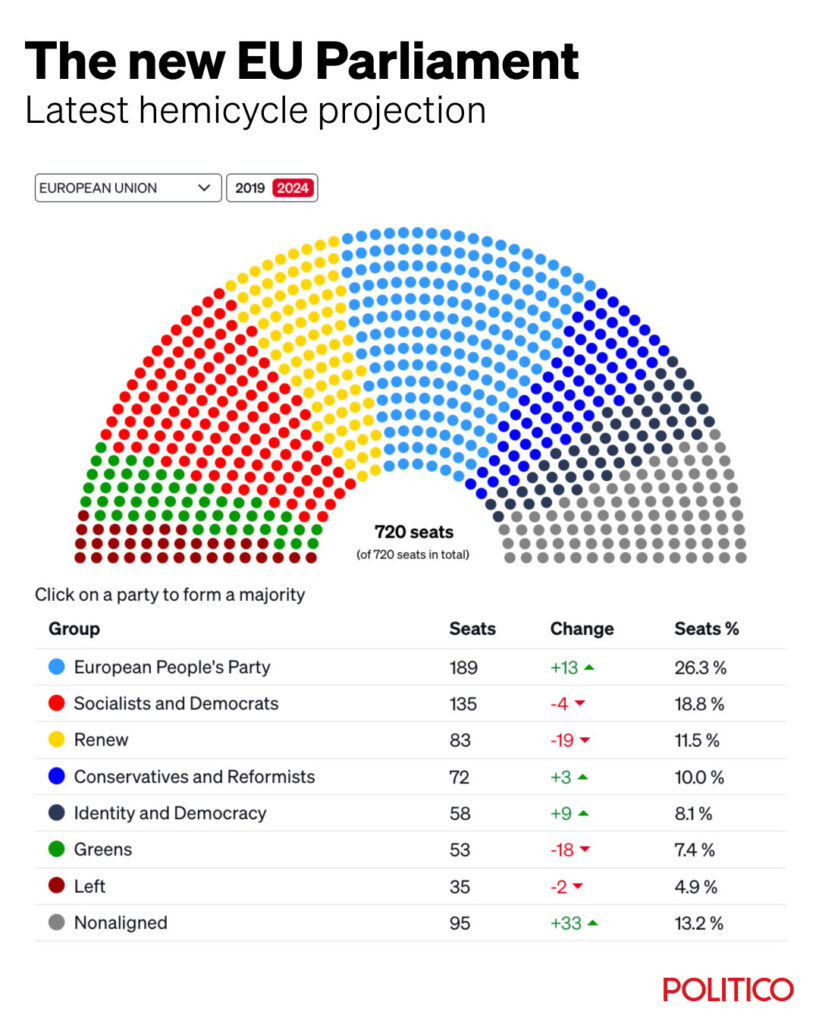
European Parliament hemicycle projection
Source: Twitter.com/POLITICOEurope
The big story: the far-right surge
The European Conservatives and Reformists (ECR) and the Identity and Democracy (ID) party families, which came out on top in the elections, have been significantly strengthened, with the ECR gaining at least 5-6 seats and ID – despite the exclusion of the AfD – gaining 8-9 seats.
Marine Le Pen’s far-right National Rally victory was the night’s big story after its strong performance impelled Macron to dissolve parliament and call a new election. Far-right parties also came first in Austria, tied for first place in the Netherlands and came in second in Germany and Romania. French firebrand Éric Zemmour’s Reconquest also scraped into Parliament.
The far-right populist Alternative for Germany (AfD) came second at 15.9%, apparently not affected by the spying and corruption scandals, the months of mass protests against the party, or the banning of the list leaders for the last weeks of the campaign. The populist party has become undoubtley Germany’s second most supported force.
Despite this, it is far from certain that they will have a greater impact on actual EU decision-making in the European Parliament as a consequence.
All in all, politically, Europe’s map is being redrawn, and UnHerd has created a visualization of where this change is most apparent. While EU states in northwestern Europe are turning populist following the weekend’s results, the trend has been less dramatic in the Iberian countries of Spain and Portugal, in Eastern Europe, and in Scandinavia.
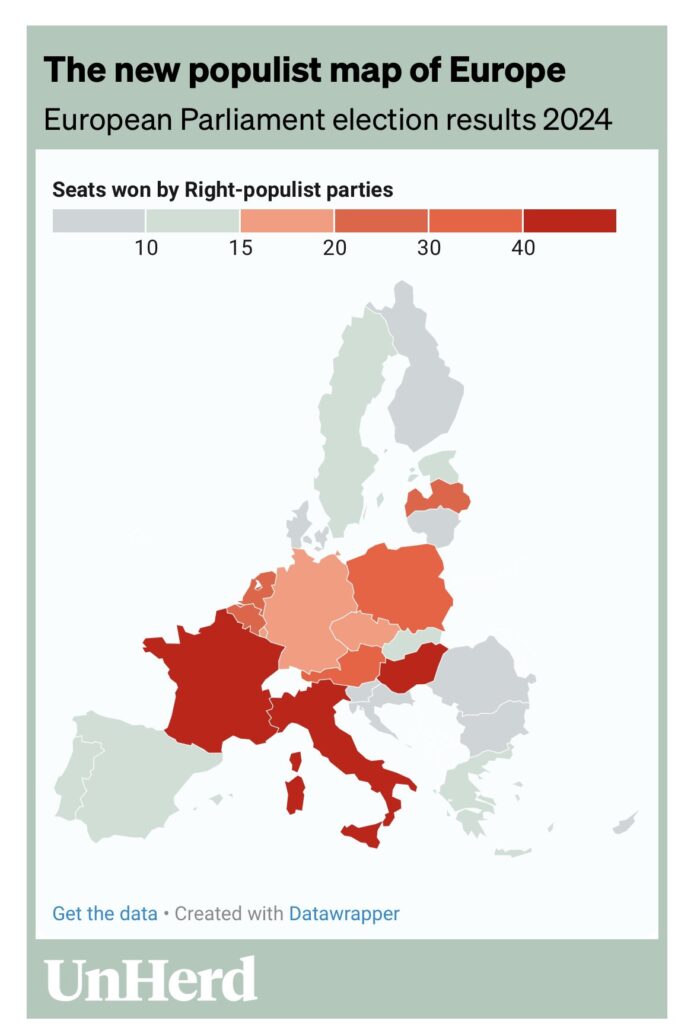
Populist majority in EU
(Source Twitter.com/@freddiesayers)
However, the far right in Spain can also celebrate: the Vox party, led by Santiago Abascal, won six seats instead of four. The far-right influencer Luis ‘Alvise’ Pérez, who has just entered the electoral race, immediately gained 3 seats at the head of “End of the Party” (Se Acabó La Fiesta, SALF formation). In Portugal, far-right Chega! won 2 seats, with around 9 percent of the votes.
Option 1: EPP-ECR coalition?
This could come in particularly handy at a time when the French president and the Germans are facing a serious domestic political crisis. We have seen examples of smooth cooperation between these leaders before, most recently on 1 February, when they jointly “persuaded” Viktor Orbán to lift the Hungarian veto. The German-French tandem continues to have an interest in maintaining European stability and a balance of decision-making, which requires the Italian prime minister, even if the decision-making weight seems to have been added to that of the Polish prime minister.
Option 2: The Grand Coalition Revival
In this case, they would have a terribly stable position in the European Parliament with more than 450 MEPs behind them. However, this would mean completely ignoring political trends and the will of the electorate, which in the long term does not tend to pay off strategically. As a consequence, Giorgia Meloni would have an elementary interest in creating the second largest EP parliamentary group together with Marine Le Pen, which would of course coincide with the interests of Fidesz, as already expressed by the Hungarian Prime Minister.
How Meloni Decide?
One key to resolving the situation lies in the hands of the Italian Prime Minister. It will be up to Giorgia Meloni to decide whether to extend Italy’s (and her own) influence in the European political space in the short or long term, beyond her current political mandate. The political alignment of the Fratteli d’Italia in recent years – support for Ukraine, the disarming of Euroscepticism, the almost friendly cooperation with Ursula von der Leyen – and the ever-changing and uncertain Italian domestic political movements suggest that the Italian Prime Minister will choose the shortcut rather than another equally risky long run with Marine Le Pen.

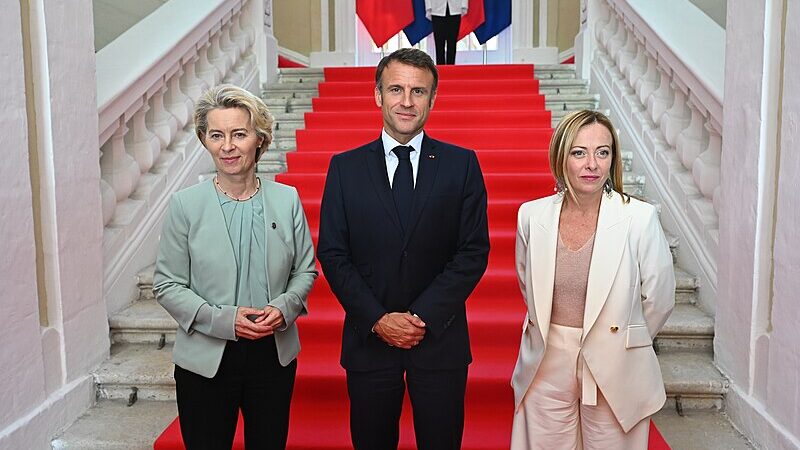

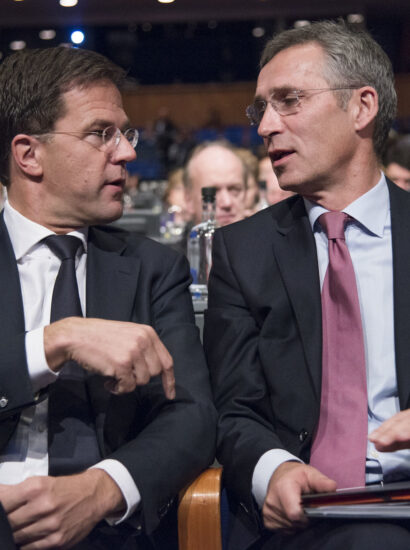
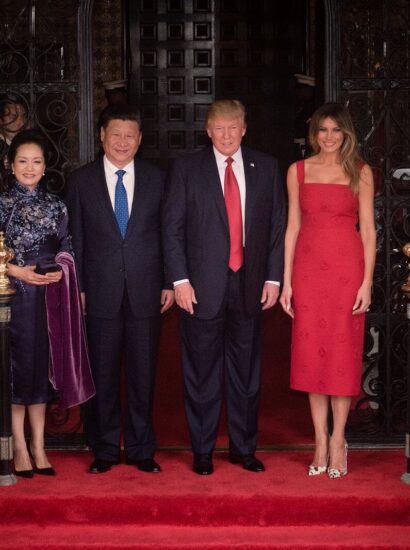
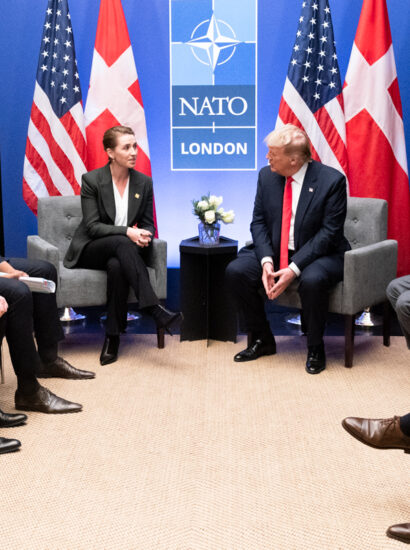
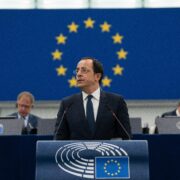

[…] Institute think tank, talked about two fundamental things in conservatism and things that have affected the European elections. The first thing he refers to is green policies, which he calls “madness”, but admits that as […]
[…] June 9, 2024, the European Parliament elections were held. It eventually resulted in a political earthquake in France, as Marine Le Pen’s party, […]